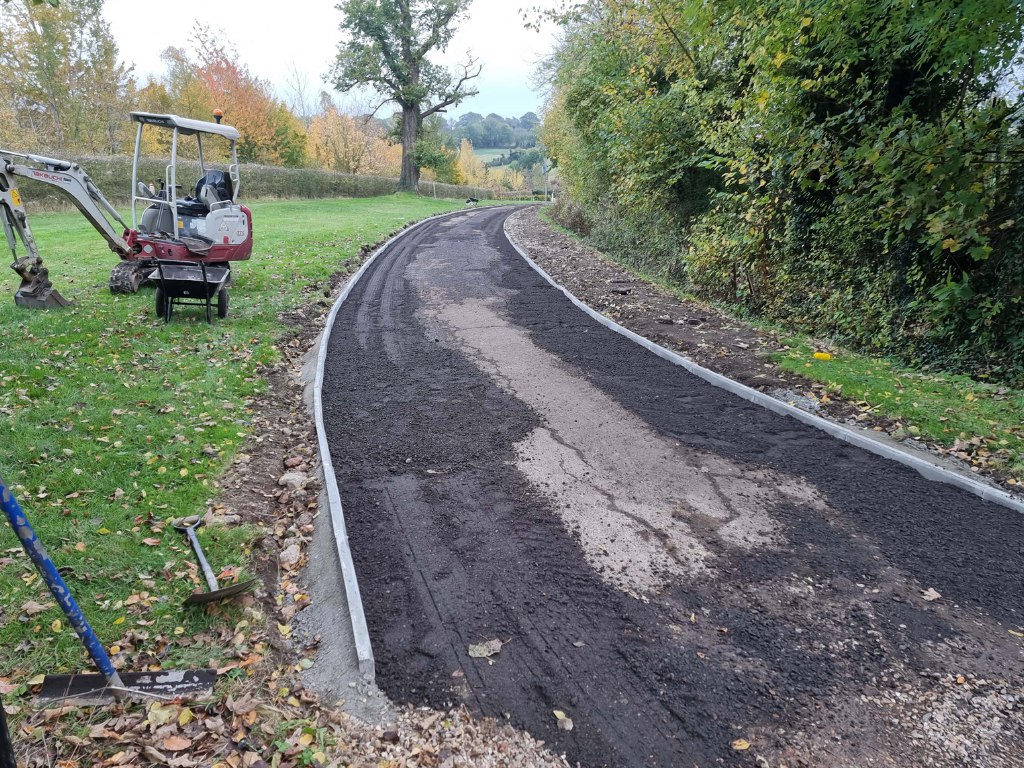How to Ensure a Slip-Resistant Surface on a Tar & Chip Driveway
A tar and chip driveway is a durable and cost-effective surfacing option that provides excellent traction under normal conditions. However, ensuring that the surface remains slip-resistant throughout the year requires proper installation, maintenance, and material selection. This guide explores the key factors in achieving a safe and reliable tar and chip driveway, helping you to maintain a secure and long-lasting surface.
Why Slip Resistance Matters for Tar & Chip Driveways
A driveway that lacks sufficient grip can become hazardous, particularly in wet or icy conditions. Ensuring a slip-resistant surface is essential for:
- Safety – Reducing the risk of slips and falls for pedestrians and vehicles.
- Durability – Preventing premature wear caused by erosion or water retention.
- Year-Round Performance – Ensuring stability even during adverse weather conditions.
Choosing the Right Aggregate for Grip
The choice of aggregate plays a vital role in creating a slip-resistant surface. Different stone types provide varying levels of traction:
- Angular gravel – Sharp-edged stones interlock better and provide superior grip.
- Granite chippings – Naturally textured for a firm, non-slip surface.
- Limestone chips – A durable option that offers a rough texture.
The stone size is also crucial. Smaller stones (6–10mm) create a smoother finish, while larger stones (14–20mm) offer increased grip, particularly in high-traffic areas.
Proper Installation for Maximum Traction
Ensuring a slip-resistant tar and chip driveway starts with professional installation. Key considerations include:
Adequate Stone Coverage
- The stone layer should be evenly distributed to avoid smooth patches.
- A second layer of stone may be required for added grip, depending on traffic levels.
Compaction and Bonding
- Using a mechanical roller ensures stones are properly embedded in the tar, preventing loose material from creating an uneven surface.
- Applying a quality bitumen binder enhances adhesion and durability.
Slope and Drainage Considerations
- Driveways should have a slight gradient to prevent water pooling, which can lead to icy patches in winter.
- Installing drainage channels or soakaways can help divert excess water away from the surface.
Maintaining a Slip-Resistant Tar & Chip Driveway
Regular Sweeping
Loose stones can reduce traction and lead to uneven wear. Sweeping the surface periodically prevents excess gravel from building up in certain areas.
Re-Chipping When Necessary
Over time, some of the top layer of stone may loosen or wear down. A re-chipping process every 5–7 years helps maintain grip and extends the driveway’s lifespan.
Treating for Moss and Algae
In damp or shaded areas, moss and algae can develop, creating slippery patches. To prevent this:
- Apply a moss and algae treatment annually.
- Keep the driveway clear of fallen leaves and organic debris.
De-Icing in Winter
To maintain slip resistance in colder months:
- Use grit or sand instead of traditional rock salt, which can damage the surface.
- Avoid excessive use of de-icing chemicals, as they can weaken the bitumen binder.
Professional Tar & Chip Driveway Installation in Haverhill, Cambridgeshire
At Haverhill Driveways, we specialise in installing and maintaining high-quality tar and chip driveways that prioritise safety and durability. Our expert team ensures the right aggregate, application techniques, and maintenance solutions to keep your driveway slip-resistant year-round.
Conclusion
A slip-resistant tar and chip driveway enhances safety, durability, and performance. By choosing the right aggregate, ensuring professional installation, and following a regular maintenance routine, you can enjoy a reliable, non-slip surface for years to come.
For expert tar and chip driveway solutions in Haverhill, Cambridgeshire, contact Haverhill Driveways today. Our experienced team is ready to provide tailored solutions for a secure and long-lasting surface.
Call us on: 01440 840 590
Click here to find out more about Haverhill Driveways
Click here to complete our contact form and see how we can help with your driveway needs.

